Efficient Automated Calibration Services for Increased Accuracy and Precision
Automated calibration services play a crucial role in ensuring the accuracy and precision of measurement instruments across various industries. These services not only streamline the calibration process but also improve efficiency and reduce the risk of human error. In today's fast-paced and technologically advanced world, efficient automated calibration services are increasingly in demand to meet the high standards of accuracy and precision required in industries such as manufacturing, healthcare, and research. With the help of automated calibration services, organizations can achieve reliable and consistent calibration results, ultimately leading to improved product quality and operational efficiency. This article will explore the benefits and importance of efficient automated calibration services in achieving increased accuracy and precision in measurement instruments.
Efficient automated calibration services use advanced technology to calibrate instruments and equipment with increased accuracy and precision. These services are designed to streamline the calibration process, reducing the potential for human error and ensuring that measurements are consistently accurate. Automated calibration also allows for faster turnaround times, minimizing downtime and increasing productivity. By implementing automated calibration services, companies can improve the reliability of their equipment and comply with industry regulations and standards. Overall, these services offer a cost-effective and efficient solution for maintaining the accuracy and precision of measurement tools.
Maximizing Efficiency: The Benefits of Automated Calibration Services
calibre building services
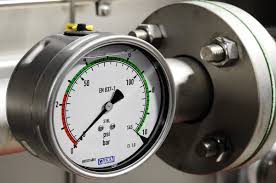
Automated calibration services can significantly improve efficiency by reducing human error and streamlining the calibration process. These services utilize advanced technology to automate the calibration of equipment, instruments, and devices, saving time and resources for businesses. Additionally, automated calibration services can provide more accurate and consistent results compared to manual calibration processes. This not only increases productivity but also ensures the quality and reliability of the calibrated equipment. Overall, the benefits of automated calibration services include improved efficiency, cost savings, and higher levels of accuracy and precision.
Improving Accuracy: How Automated Calibration Services are Revolutionizing Industries
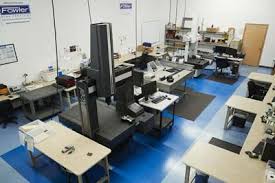
Automated calibration services use advanced technology to improve accuracy in various industries. These services have revolutionized the way in which instruments and equipment are calibrated, leading to more precise measurements and enhanced overall performance. By automating the calibration process, companies can reduce human error, increase efficiency, and ensure that their equipment is consistently calibrated to meet industry standards. This has had a significant impact on industries such as manufacturing, healthcare, and telecommunications, where accuracy is crucial for success. Automated calibration services have also helped to streamline the calibration process, saving time and resources for businesses while improving the quality of their products and services. Overall, the adoption of automated calibration services has led to a significant advancement in accuracy and reliability across a wide range of industries.
Simplified Calibration: The Advantages of Automated Calibration Services
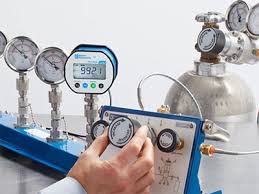
Automated calibration services offer several advantages over traditional manual calibration methods. These include increased efficiency, greater accuracy, and reduced labor costs. By automating the calibration process, companies can eliminate human error and ensure consistent and reliable results. Additionally, automated calibration services can provide real-time monitoring and data management, allowing for better traceability and compliance with regulatory requirements. Overall, the use of automated calibration services can lead to improved productivity and cost savings for businesses in various industries.
The Future of Precision: Automated Calibration Services Explained
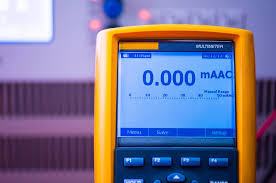
The Future of Precision: Automated Calibration Services Explained is a comprehensive article that discusses the growing trend of automated calibration services and their impact on various industries. The article delves into the benefits of these services, such as increased efficiency, reduced human error, and cost savings. It also examines the technology behind automated calibration and how it is revolutionizing traditional calibration processes. Additionally, the article explores the potential challenges and limitations of automated calibration services, as well as the outlook for the future of precision in various sectors. Overall, it provides a thorough understanding of the role of automated calibration in shaping the future of precision measurement.
Saving Time and Money: The Impact of Automated Calibration Services
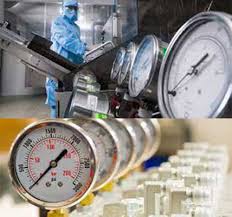
Saving Time and Money: The Impact of Automated Calibration Services Automated calibration services offer a number of benefits for businesses, including the ability to save time and money. With automated calibration, companies can streamline their calibration processes, reducing the time it takes to perform these tasks. This not only allows employees to focus on other important aspects of their jobs, but also saves on labor costs. Additionally, automated calibration services can help to minimize errors and reduce the risk of costly mistakes. By automating calibration processes, companies can ensure that measurements and testing are consistently accurate, minimizing the risk of product defects or equipment failures. This can ultimately result in cost savings by avoiding the need for rework or the replacement of faulty equipment. Moreover, automated calibration services often provide businesses with access to real-time data and reporting, allowing for better decision-making and improved efficiency. By having immediate access to calibration records and equipment status, companies can better manage their assets and identify any issues more quickly, ultimately saving time and money in the long run. Overall, the impact of automated calibration services on businesses can be significant, leading to cost savings, improved productivity, and enhanced quality control. As a result, more and more companies are turning to automated calibration services to help them stay competitive in today's fast-paced, technology-driven world.
Streamlining Maintenance: The Role of Automated Calibration Services
Streamlining maintenance with the use of automated calibration services involves the implementation of technology to simplify and expedite the calibration process for equipment and machinery. This can involve the use of software to schedule and track calibration activities, as well as automated tools and equipment for performing calibrations with precision and efficiency. By utilizing automated calibration services, organizations can improve the accuracy and reliability of their maintenance processes, reduce the risk of errors, and minimize downtime. Additionally, automated calibration services can provide documentation and records of calibration activities, which is essential for compliance with industry regulations and quality standards. Overall, the use of automated calibration services plays a crucial role in streamlining maintenance operations and ensuring the optimal performance of equipment and machinery.
Enhancing Quality Control: The Importance of Automated Calibration Services<
calibre building services/h2>
Automated calibration services are crucial for ensuring accurate and consistent quality control in various industries. These services utilize advanced technology to calibrate and maintain equipment and instruments, such as sensors, gauges, and meters. Automated calibration eliminates the need for manual adjustments, reducing the risk of human error and ensuring precise measurements. One of the key benefits of automated calibration services is the ability to streamline the quality control process. By automating the calibration of equipment, businesses can save time and resources while maintaining high levels of accuracy. Additionally, automated services can provide real-time data tracking and analysis, allowing for proactive maintenance and minimizing downtime. Furthermore, automated calibration services help businesses comply with industry regulations and standards. By ensuring that equipment is consistently calibrated and functioning within specified tolerances, businesses can avoid costly fines and legal repercussions. Overall, automated calibration services play a critical role in enhancing quality control by providing consistent and accurate measurements, improving efficiency, and ensuring regulatory compliance. Businesses that invest in automated calibration services can experience improved productivity and reliability in their operations.
Optimizing Processes: Implementing Automated Calibration Services
One of the key ways to optimize processes is by implementing automated calibration services. This can help to streamline and standardize the calibration process, reducing the potential for human error and increasing efficiency. Automated calibration services can also provide real-time data and scheduling, ensuring that equipment is always operating at its best. This can be particularly beneficial in industries where accurate and precise measurements are crucial, such as manufacturing, pharmaceuticals, and healthcare. Overall, implementing automated calibration services can lead to improved productivity, reduced downtime, and better quality control.
Advanced Technology: The Innovations in Automated Calibration Services
Advanced Technology has led to significant innovations in automated calibration services. These services now use advanced software and hardware to calibrate instruments and equipment with greater precision and efficiency. Automated calibration services can now perform multiple calibrations simultaneously, reducing turnaround times and improving productivity. The use of automation also minimizes the risk of human error, resulting in more accurate calibrations. Additionally, advanced technology has enabled remote calibration services, allowing for calibrations to be performed at off-site locations, saving time and resources for businesses. Overall, these innovations in automated calibration services have greatly improved the reliability and effectiveness of calibration processes for a wide range of industries.
Reliable Results: The Power of Automated Calibration Services
Reliable Results: The Power of Automated Calibration Services discusses the advantages of using automated calibration services to ensure accurate and consistent results in scientific and industrial settings. The article highlights the efficiency and reliability of automated calibration processes, which can lead to cost savings and improved overall productivity. Additionally, the piece delves into the technologies and software solutions that make automated calibration services possible, providing a comprehensive overview of the benefits and applications of this approach.
Comments
Post a Comment